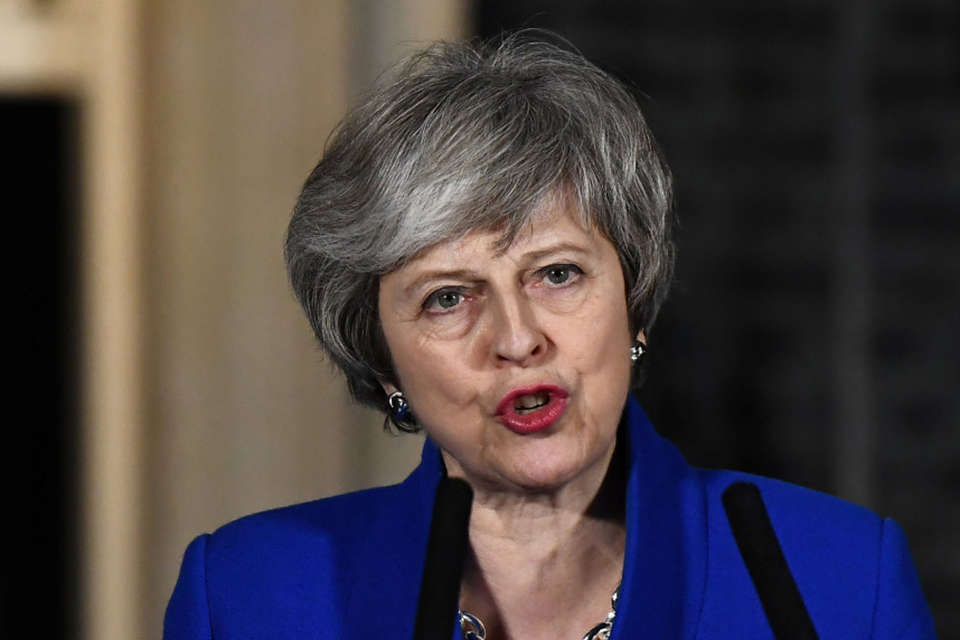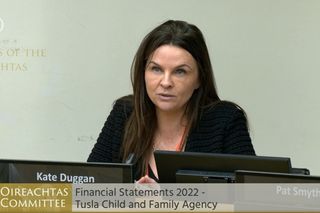Julie Sinnamon: 'Businesses have heeded Brexit message and prepared for worst'
Rejection of Theresa May’s EU deal has added to the climate of uncertainty. Photo: Reuters
Uncertainty has been the watchword for Irish business since June 2016, when Britain voted to leave the EU. The rejection of UK Prime Minister Theresa May's Brexit deal this week compounds it.
Enterprise Ireland's consistent message since the UK referendum has been to prepare for a hard Brexit.
It has provided, perhaps, the only certainty possible in the current uncharted waters: hope for the best but plan for the worst.
The encouraging news in challenging times is that our client companies have been doing just that, as our end-of-year report, published earlier this month, demonstrates.
In a strong performance, our results for 2018 show that more than 215,000 people are now employed by Enterprise Ireland-supported companies.
What's more, 61pc of the new jobs that Enterprise Ireland client companies have created are located outside of Dublin.
Irrespective of Brexit, that is great news.
What's more, the 2018 report shows consistent growth in every region and across every sector we operate in, putting Ireland in a better position to deal with the challenges ahead.
Though we don't yet know what these will be, what we have said since June 2016 - supported by our dedicated PrepareForBrexit.ie website - is that companies needed to prepare for a hard Brexit.
The only way for them to do that is to improve their competitiveness; innovate in relation to their products; and diversify their markets.
We have said from the start that by taking action companies will be in a stronger position irrespective of where the Brexit negotiations end up.
It has been our mantra.
What our end of year results show is that the message has gotten through.
This is particularly heartening because the detrimental effects of any Brexit will be felt here long after March 29.
Irish business's growing preparedness is all the more heartening, too, because we couldn't take it for granted.
Indeed, one of the elements we found disappointing when we launched our end of year results this time last year, for 2017, was that only 38pc of our client companies had taken Brexit-related action. This year that figure has grown to 85pc.
Enterprise Ireland has been specifically targeting companies that are most vulnerable to Brexit and the changes in trading conditions it could create.
In all, Enterprise Ireland approved €74m in funding for 535 Brexit-exposed companies in 2018.
Having identified them, we worked with them on improving their competitiveness and supported them as they invested in, for instance, new plant and equipment to ensure they are as productive and competitive as possible.
We also supported them as they developed their export strategies globally.
Our end-of-year results give definition to what we now see daily, that is, Irish companies taking action, investing, and developing overseas markets.
Many participated in one of the 200 trade missions Enterprise Ireland organised last year - an average rate of four a week -opening doors overseas, making introductions, facilitating meetings and building overall export nous.
Enterprise Ireland will be ramping up the scale and scope of these activities this year, with 270 trade missions planned for 2019.
This year we will be in a position to deliver even more value to our client companies by building our network of personnel internationally.
Specifically, we will see a significant expansion to our overseas offices network in 14 priority markets over the next 18 months, including new offices in Germany, France, USA, Denmark, Vietnam and Australia, to help companies expand beyond the UK.
All this activity is aimed at ensuring we in Enterprise Ireland do as much as we need to help Irish companies grow internationally.
Of course, the UK is, and will remain, a hugely important trading partner.
But the upside to Brexit for Irish businesses is that it has been a burning platform that has forced companies to accelerate their global ambition and look to other markets.
In truth, they were already doing it.
A decade ago, 44pc of our client company exports went to the UK. By 2017 that figure had fallen to 34pc.
This was despite the fact that we had grown UK exports overall by 50pc over the same period.
We simply grew our exports to rest of the world at a faster rate. Brexit has sharpened that focus.
The rejection of Theresa May's Brexit deal this week has added to the current feeling of uncertainty.
No one knows where the negotiations will end up.
What we can say for sure, as we have done since June 2016, is that by working on competitiveness, innovation and diversification, Irish businesses will be in the best possible position to cope with whatever emerges.
What we can also say, because our end of year results prove it, is that Irish businesses have been listening to our unwavering Brexit message and, crucially, are taking action.
Julie Sinnamon is chief executive of Enterprise Ireland
Join the Irish Independent WhatsApp channel
Stay up to date with all the latest news















